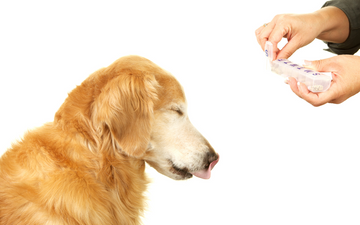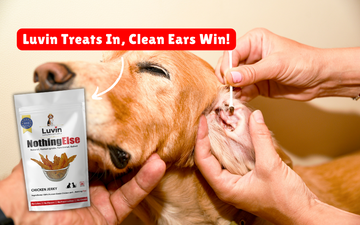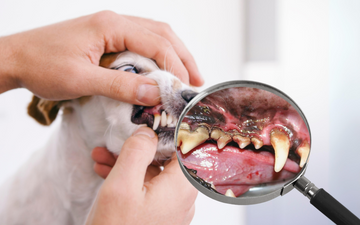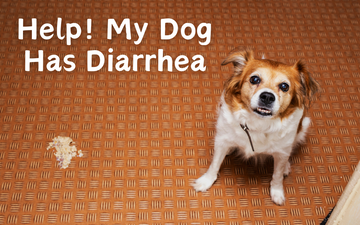
Well as a pet parent, we guess that you have read the back label of many food packets and one thing that you might have come across apart from the big players protein, fat, and carbohydrate is vitamins. You know that vitamin means something that is important and should be in food for pet but are generally unaware of what are they and how every dog's vitamins and minerals plays an essential role as a building block for growth and good well-being.
What are vitamins?
A very important organic micronutrient is required in small amounts but plays a very vital role in promoting good health and uniform development of your dog.
Dogs can synthesize Vitamins like vitamin D, vitamin K, vitamin C, and vitamin B complex on their own but the amount synthesized is not enough to sustain the physiological need of the body and have to be provided through a dog multivitamin diet, unlike the above-mentioned vitamin A, vitamin E and Vitamin B1, B2, B3, B5, B6, B, B9, and B12 dogs totally rely on dietary sources to fulfill their requirements.
Dog Vitamins
Vitamin A is important for vision, skin health, and good immune function.
Vitamin B1 supports the muscles of the heart, vitamin B2 helps in energy production and nerve function, vitamin B3 lowers cholesterol levels, and vitamin B5 is involved in the production of fatty acids.
Brain development and function are supported by vitamin B6.
Vitamin B7 is called biotin You may have heard the name many times used for healthy skin, healthy hair, and nails. Vitamin B7 also plays an important role in fatty acid synthesis and energy metabolism.
Vitamin B9 is important for DNA synthesis, cell division, and the formation of red blood cells. It's especially important for reproduction.
Vitamin B12 is essential for red blood cell production and is mainly found in animal-based food like chicken and egg powder if your pet food brand lacks these types of ingredients you may need to add supplements to your dog food.
Many B vitamins act as co-enzymes in energy metabolism and conversion of nutrients into absorbable form.
Adequate vitamin B complex for dogs can support their metabolic needs and overall vitality.
Vitamin C supports the immune system, wound healing, and healthy skin. Vitamin C is also often associated with joint health in dogs, vitamin C plays a role in the production of collagen, a protein that is essential for the health of connective tissues, including joints. It can help support joint health and may be beneficial for dogs with arthritis, joint pain, or conditions like hip dysplasia so it will be not unfair to say that it can be used along with other joint supplements for dogs. Dogs can synthesize their own vitamin C (ascorbic acid) in their liver but still need some dietary sources in food for pets like sweet potato starch to meet the requirements of vitamin C for dogs.
In dogs vitamin D supports bone growth, dogs can produce vitamin D in their skin when exposed to sunlight (UVB rays). However, dietary sources of vitamin D are still important for them, especially when they have limited sun exposure as it directly affects the absorption of calcium in the body which helps bone growth and proper neural functioning.
Vitamin E in dogs is a fat-soluble vitamin that has antioxidant properties that prevent cell damage support the immune system and is important for your dog's shiny coat, You may be looking for food for skin allergies but this might be just solved by vitamin E supplementation.
Broccoli and spinach are great sources of Vitamin K which is necessary for blood clotting and bone development.
Why do dogs need vitamins in their diet?
Vitamin C, vitamin B1, vitamin B2, vitamin B3, vitamin B5, vitamin B6, vitamin B7, vitamin B9, and vitamin B12 are water-soluble vitamins these vitamins are not stored in the body for extended periods and need to be replenished periodically through diet.
Excess of these vitamins will be excreted from the body.
Vitamin A, vitamin D, vitamin E, and vitamin K are fat-soluble they dissolve along with the dietary fat and are absorbed along with the fats.
Over-supplementation of anything is bad, especially fat-soluble vitamins as their excessive feeding may cause vitamin toxicity.
What food dogs can eat to provide them with every vitamin?
Home-cooked food, prepared with all good intentions, at times, falls short of vitamins because recipes come from cookbooks and not books of nutrition. As a result, many of these vitamins are either not balanced or are lost. due to their heat-sensitive nature, during preparation. Further, Fat-soluble vitamins like A, E, and K require fat for absorption and sometimes pet food lacks that proper amount of fat.
While selecting food for your pet, choose at least one Complete and Balanced diet, which can be expected to provide the required Vitamins and minerals.
At the same time, if you are unsure the meal you are providing might be deficient in some vitamins, it might be a good practice to supplement with multivitamins from time to time. Vitamin deficiency will lead to health problems like flaky skin, hair fall, poor body growth suppressed immune system to name a few. Always discuss with an expert before adding anything to your dog's diet because every dog has varied requirements according to their age, breed, and activity level.






